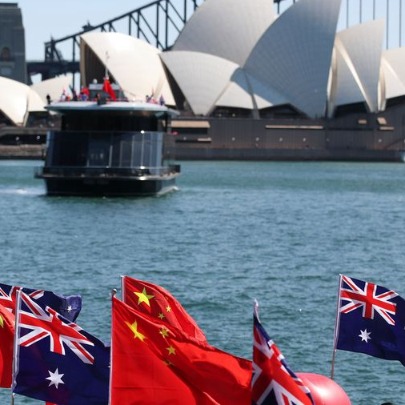



Although little is known about the meeting between Chinese Vice-Minister of Foreign Affairs Xie Feng and Australian Ambassador to China Graham Fletcher in Beijing on June 30, it has further raised hopes that a rebound in Sino-Australian relations is on the horizon.
Since Anthony Albanese became Australian prime minister on May 23, a window of opportunity has opened to ease the tensions between the two countries.
Both sides have indicated their willingness to engage over the past month after their defense ministers' meeting on the sidelines of the Shangri-La Dialogue in Singapore last month.
That the meeting between Xie and Fletcher took place, despite China turning down the Australian side's proposal that their trade ministers meet on the sidelines of the World Trade Organization's 12th Ministerial Conference in Geneva, demonstrates that sustained efforts to keep that window of opportunity open have been made by both sides.
Having closed ranks with the United States and its "decoupling from China" policy, Australia paid a heavy economic price under the previous Scott Morrison administration. The Albanese administration has indicated it is willing to take a more balanced approach to Australia's relations with China and the US.
Rewarming economic ties with China will be a tonic for the Australian economy. Despite the cooling down of their economic ties over the past three years, China remains Australia's largest trade partner. About 40 percent of Australia's exports go to the Chinese market and 20 percent of its imports come from China.
Although Australia has not jumped off the anti-China bandwagon of the US, it is no longer riding shotgun.
The Albanese administration has on different occasions expressed its readiness and openness to engage with the Chinese side, and the Chinese side, on its part, has signaled its goodwill.
It is to be hoped that with the worsening of their relations checked, the two sides will take the opportunity of the G20 Foreign Ministers Meeting in Bali, Indonesia, on Thursday and Friday to carry on the positive momentum with a meeting of their foreign ministers on the sidelines of the gathering.
There is no "autopilot" for the recovery of relations between the two countries. And Canberra undoubtedly holds the key to start that process. In doing so, Australia would be balancing itself between China and the US.
As such, assuming the role of a responsible major player, it would necessarily enjoy much more importance than it did in its previous role as a lackey of the US.
If you have any problems with this article, please contact us at app@chinadaily.com.cn and we'll immediately get back to you.